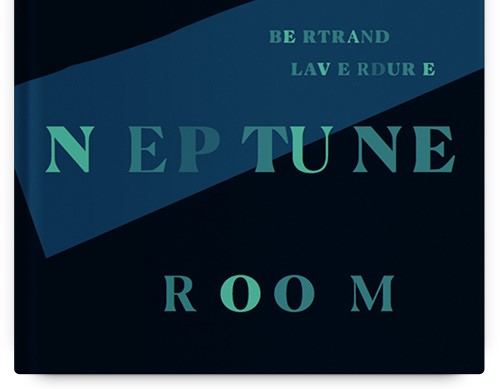Review of The Neptune Room
Book*hug Press. 2020. 202 pages.
Life tragedies can often be found on the smallest level, especially when the suffering of a child influences parents, family friends, and even doctors involved. Bertrand Laverdure’s evanescent novel, The Neptune Room, asks why the ripples of pain disappear the closer a person is to the victim. In a beautiful English translation by Oana Avasilichioaei, the book tackles mortality through everyone involved. The gender-fluid doctor, Tiresias, does her best to save a child, Sandrine, as the patient struggles with a deadly illness. The doctor considers dropping their profession to become a poet while Sandrine’s mother, Ninelle, distracts herself completely by pursuing her music career. She all but loses sight of her daughter while the pain burrows into her work.
There are points where I’m drawn into the depression, and actually experience the hurt of losing someone so close and so innocent. There’s irony in that I don’t feel this with Ninelle; I feel this through Tiresias’ moral threshold as they accept their health practitioner role isn’t all roses and sunshine. Laughter may be the best medicine, but there’s ambiguity in accepting that some people die. Even if it’s a child who passes.
Avasilichioaei captures evocative prose that I have no doubt Laverdure produced in French. I’m in awe with the writing, and couldn’t contain my nerdiness fawning over the descriptions. It’s hard not to fall in love with lines like “In the dark vivarium of night, despite the uncertain alleviation of beings and things, everything goes on regardless.” Both author and translator pack so much emotion in something so trivial. The beautiful prose elegantly carries the pain while imbuing each word with significance; it’s something so rarely found today. Put this in an English Undergrad class, and you’ll have students analyzing the work for months, reeling with ideas until the end of the semester.
The biggest issue I have is with the dialogue. Laverdure has his characters express themselves with needless expressions and choppy chemistry. During a dream, Tiresias speaks with a ferryman who tells them “Your neuroses are complex; what’s more, you’re likely not made for sustained companionship. Do you plan on visiting the museum of your relational horrors?” Now, if this happened once, I would be more understanding. But a few pages more, Tiresias is at a medical conference and someone tells them “Your comment is stupid and disingenuous!” Both passages read like Siri speaking a rushed assignment out loud. Maybe it sounds better in French, maybe the translation just faltered, or maybe Avasilichioaei wanted to honestly translate something, but the lines still sound stilted. If there is one thing wrong with The Neptune Room, it’s the dialogue.
If someone discredited the book only for that, that person would be missing the amazing qualities that Laverdure and Avasilichioaei bring with their writing. The opening scene is a perfect representation of what the novel is about. The readers see death at the smallest level. Emotions jolt forward like I’m in a car crash. This comes from one child, a small being, a single person, one individual, who affects so many around her. You can’t ignore the ramifications, and Laverdure refuses to let one life lie still. To have someone pull through, Laverdure writes, “and by pulling through, pulls fate along with them, drags luck in their wake and sows their story with successes.” Sandrine is felt through every character and every one of their life moments. As the opening establishes every character in relation to her, The Neptune Room reminds us that each person sows a story in others. Our relationships are a tapestry strung by expert crafters. It’s better to recognize this in the people around you. And to recognize that one life, no matter how small or innocent, affects people. Even if a person is only a passerby.

